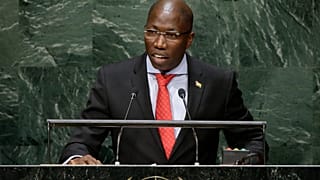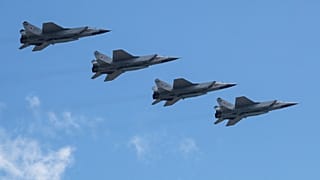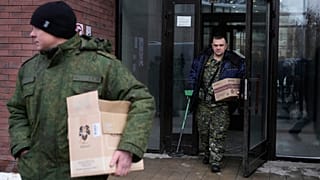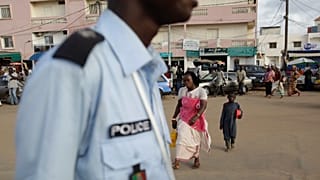Russia
In Moscow, Alexey Navalny's grave was covered in flowers on Sunday as foreign ambassadors marked the first year following his sudden death.
Navalny died aged 47 while serving a prison sentence in a remote Artic penal colony.
The prominent opposition leader's passing triggered shockwaves in Russia and around the world, with allies and his family accusing the Kremlin of ordering him to be killed.
Russian authorities however blamed his death on natural causes, citing a sudden spike in blood pressure and chronic diseases.
In 2020, the Kremlin had similarly denied being involved in a nerve agent attack on Navalny, which he narrowly survived after being flown to Germany for treatment.
The news of his death on 16 February 2024 led to a few instances of rare public protest in Russia.
Tens of thousands notably attended his funeral in Moscow on 1 March and people came to lay flowers at his grave for several days more.
But Navalny's death also left Russia's opposition struggling to find its footing, unable to fill the void left behind by the loss of its charismatic leader.
With many in exile abroad and others imprisoned, the movement has been unable to display sufficient unity to continue the fight against Vladimir Putin's regime.
Several hundred criminal cases have been opened over the last few years for using symbols related to Navalny, according to Russian independent news outlet Verstka.












01:00
Ukraine and Russia swap 157 prisoners each in first exchange in months
01:00
Mark Rutte visits damaged Kyiv energy site as Russia steps up attacks
01:00
Tunisia court upholds and extends prison sentences for political opponents
01:00
Kyiv hit by Russian drones: fires and injuries across multiple districts
01:00
Kyiv residents shelter in metro stations as Russian air strikes resume
01:14
DR Congo president outlines pre-conditions for a national dialogue